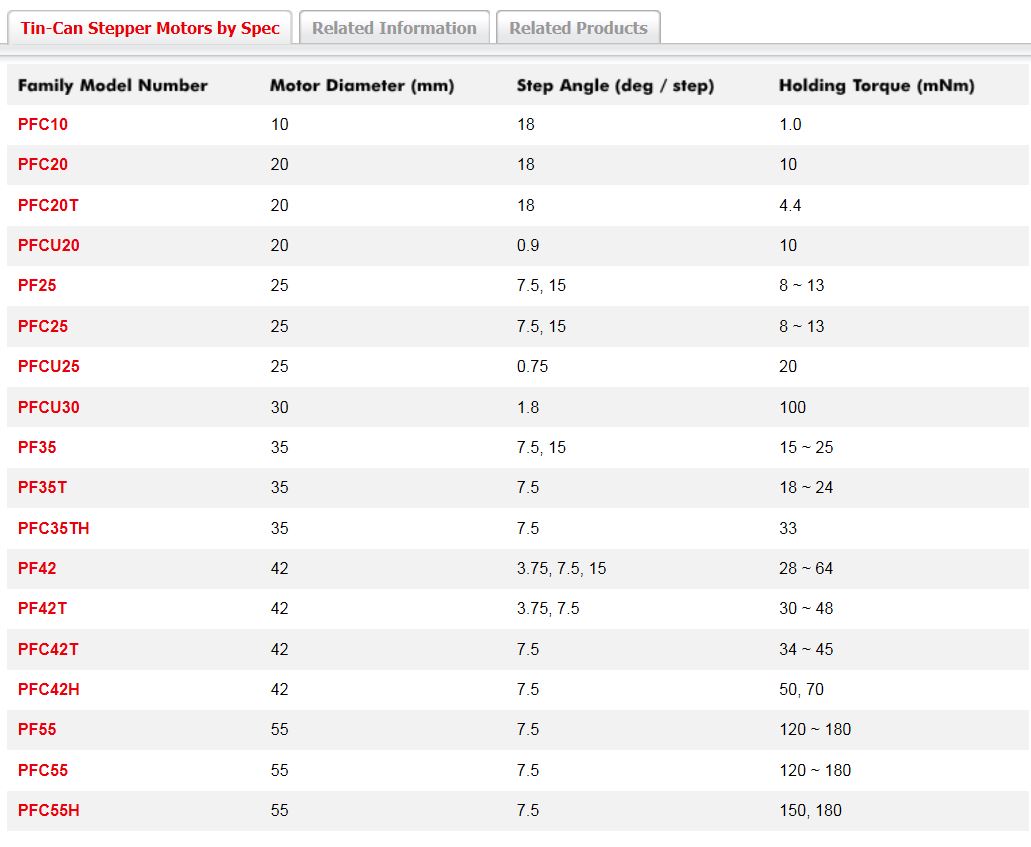Please be aware we use cookies to make your experience better. A cookie is a piece of data stored on a visitor's hard drive to help us improve your access and identify repeat visitors. Cookies can also enable us to track and target the interests of our users to enhance the experience on our site. Usage of a cookie is in no way linked to any personally identifiable non-public information. Learn more.
 Tin-Can Step Motors (also known as Can-Stack Step Motors) are 2-coil permanent magnet motors. When poles are magnetized by electric pulses applied to the coils, they attract the permanent magnet rotor core in reverse polarities, thereby starting rotation. Rotation can be continued by alternately switching the direction of applied electric pulses to change polarities. Rotating in proportion to the number of pulses sent to the motor, the tin-can stepper motor is frequency synchronized and can change speed depending on the frequency of the pulse signal. When supply of pulses to the coils is stopped, the poles are magnetized by the rotor core and the rotor stops rotating at the position where the poles and the rotor core are attracted to each other. There are two types of coil arrangements in tin-can step motors: bipolar and unipolar.
Tin-Can Step Motors (also known as Can-Stack Step Motors) are 2-coil permanent magnet motors. When poles are magnetized by electric pulses applied to the coils, they attract the permanent magnet rotor core in reverse polarities, thereby starting rotation. Rotation can be continued by alternately switching the direction of applied electric pulses to change polarities. Rotating in proportion to the number of pulses sent to the motor, the tin-can stepper motor is frequency synchronized and can change speed depending on the frequency of the pulse signal. When supply of pulses to the coils is stopped, the poles are magnetized by the rotor core and the rotor stops rotating at the position where the poles and the rotor core are attracted to each other. There are two types of coil arrangements in tin-can step motors: bipolar and unipolar.
Tin Can Rotary Stepper Motors from Nippon Pulse
The foundation of Nippon Pulse Motor, the tin-can stepper motor (PF Series) is their most recognizable product. An innovator in the motion control industry, Nippon Pulse has been manufacturing the rotary tin-can stepper motors since 1965. A conventional, magnet-driven rotary stepper motor, the PF series offers a high-performance yet cost efficient solution.

